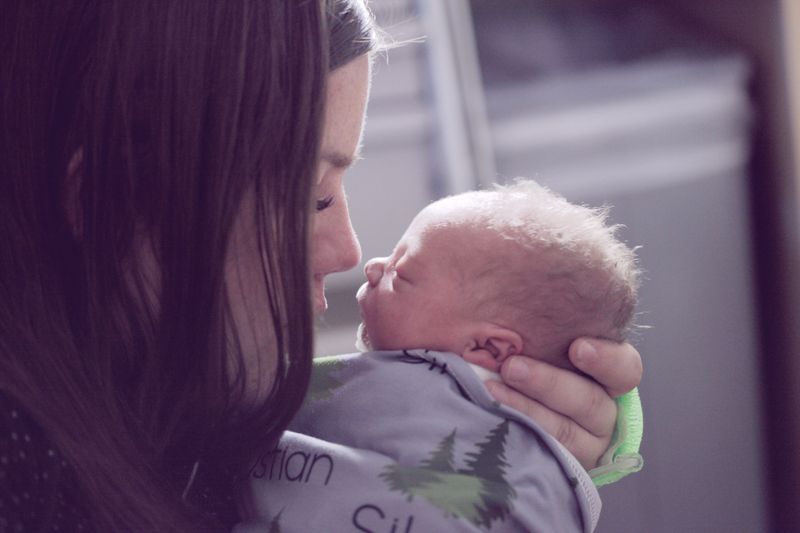 Photo by Sharon McCutcheon on Unsplash
Photo by Sharon McCutcheon on UnsplashCongratulations on making your way to motherhood! It's a wonderful experience to hold your little one in your arms right next to you.
However, the overwhelming and tiring process of healing, as well as understanding the new changes in your body and lifestyle after the birth of the baby, can be challenging.
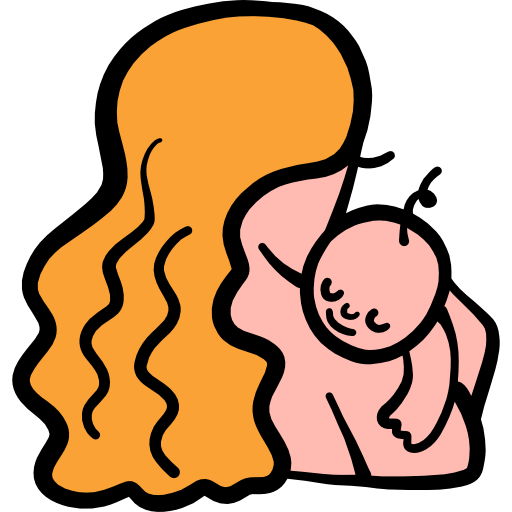
Nearly 80 percent of postpartum mothers experience baby blues or the sudden rush of being stuck, stranded, stressed, and fatigued.
Just know it's not your fault! Motherhood is an unbelievable fairytale that is as painful as it is beautiful. Birth trauma is real and it's nothing to be ashamed of.
It's important to look out for any concerning signs in your mental and physical health.
What is postpartum and baby blues?
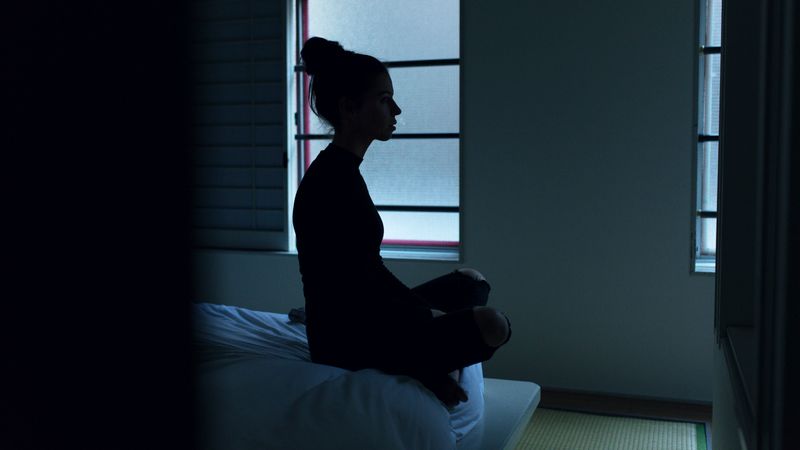 Photo by Ben Blennerhassett on Unsplash
Photo by Ben Blennerhassett on UnsplashThe postpartum or postnatal period is the time your body starts to shift back to its pre-pregnancy phase. It begins immediately after the birth of a child.
While people around you may be exceptionally joyous over the birth of your little one, you as the mother know that some things are not right within. Referred to as the "baby blues", sudden fluctuations in your hormone levels can trigger extreme mood swings in mothers following labor.

This is because your body is readily undergoing a transition phase towards recovery.
Meanwhile, since it's also important that you cater to the needs of your newborn, the baby blues can get even stronger because of sleeplessness, irritability, and anxiety. These baby blues can last usually between two to three weeks before you get accustomed to the new lifestyle.

What if my baby blues feel prolonged?
 Following the baby blues right after a child's birth, some women may also experience a worsening of the condition called postpartum depression (PPD).
Following the baby blues right after a child's birth, some women may also experience a worsening of the condition called postpartum depression (PPD).
Unlike the generic baby blues, postpartum depression is a serious mental illness that can adversely affect both the physical and mental health of vulnerable mothers and the people around them, including the baby. You're more susceptible to this kind of depression if it's been more than two weeks since the child's birth and your baby blues aren't going away.
It's essential for you to act on any signs of PPD! If left untreated and ignored over a longer period of time, it can lead to long-lasting negative effects.
Quiz
What lifestyle changes can help relieve your postpartum symptoms?
How do I know if I or people near me have PPD?
You can identify the likely presence of PPD in yourself or people around you by observing the appearance of the following symptoms:
Severe mood swings
Feeling overwhelmed and distant from the baby
Persistent fatigue and serious lack of motivation
Loss of appetite and weight loss
Anxiety and panic attacks
Repetitive thoughts of death and/or suicide
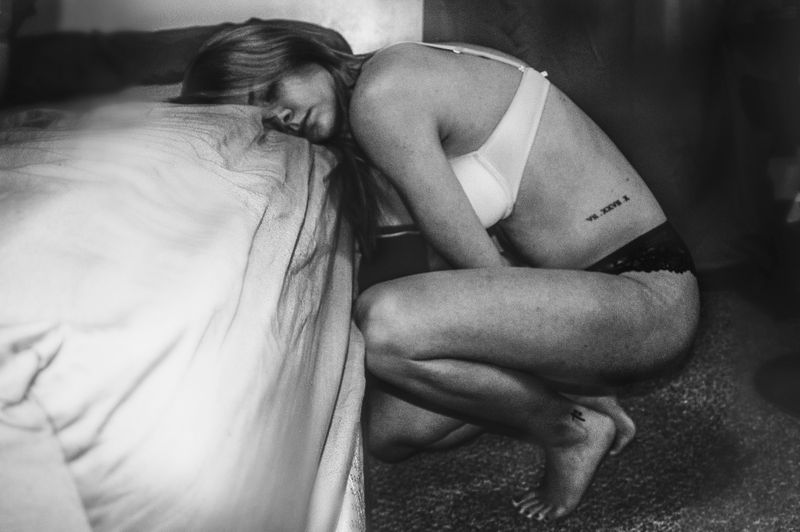 Photo by Sydney Sims on Unsplash
Photo by Sydney Sims on UnsplashHowever, the best way to identify postpartum depression is to visit a doctor. They can accurately and efficiently identify your symptoms and come up with the right plan to help you deal with them.
Quiz
If a mother displays signs of restlessness and anxiety during her fourth week postpartum, what is she likely experiencing?
Busting postpartum myths 💥
 Myth #1: PPD can only happen within the first few months of childbirth.
Myth #1: PPD can only happen within the first few months of childbirth.
The onset of postpartum depression can vary. The probability of experiencing it within the first weeks of your delivery is significant but not fixed. At times, mothers run into PPD even after 9-12 months of postpartum. This is called late-onset PPD.

Myth # 2: Women with PPD cry consistently.
PPD isn't a one-size-fits-all syndrome. Although most women are reported to cry during the postpartum phase, others might feel numb or more agitated than sad.
Myth #3: PPD can go away without any medical treatment.
Women with PPD are often judged and looked upon as insecure and ungrateful if they overtly express their condition to their family or peers. The blues followed by the depressive phase are stigmatized in many societies. Therefore, some mothers fail to express what they feel in hopes that the condition will soon die down on its own and disappear.

The truth of the matter: PPD requires serious professional counseling and even medication in some cases. Reaching out for help is your inherent right! Don't shy away from it for fear of being judged. Your health matters more than societal pressure.

Myth #4: Only women experience PPD.
Postnatal depression in women is more common than in men. However, this doesn't mean men aren't at risk. Fathers, too, can experience neglect, mood changes, and detachment postpartum. In fact, this can even trigger changes in their testosterone levels in the initial months.

Myth #5: Women with PPD are dangerous and may harm their child.
Despite compulsive thoughts about death and suicide in some mothers, the thought of harming the baby doesn't occur. Mothers going through severe depression may or may not think of harming themselves but never the child.
When PPD doesn't go away...
For people already living with postpartum depression, the condition can degenerate into a chronic health problem such as postpartum psychosis.
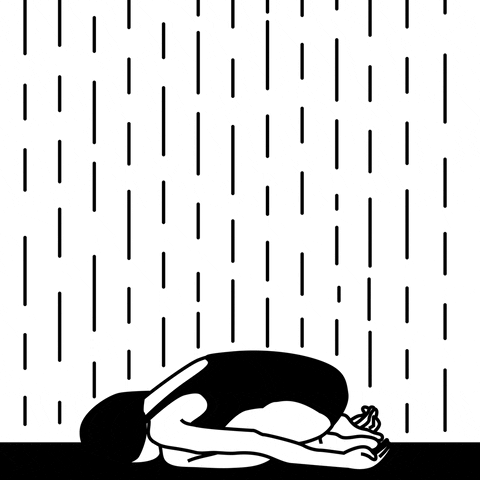
Although rare, postpartum psychosis should be treated like a medical emergency, considering its severity. The psychosis can usually stem from long, depressive periods following childbirth.
Nonetheless, having a personal or family history of mental health concerns can also trigger the problem.
For example, people with schizophrenia and or bipolar disorder are more at risk than others and may experience hallucinations or paranoia in this phase.
While the symptoms of postpartum psychosis are similar to postpartum depression, it's necessary to seek help as soon as possible to avoid the dangers of psychotic episodes.
Postpartum addiction risks

Research shows that women with postpartum depression are at greater risk of substance abuse compared to postpartum women without depressive symptoms.
If you think you might be at risk for drug or alcohol addiction after you give birth, talk to someone who can help! Contact Addiction Centre in the US, or the following organizations in Pakistan:
Take Action
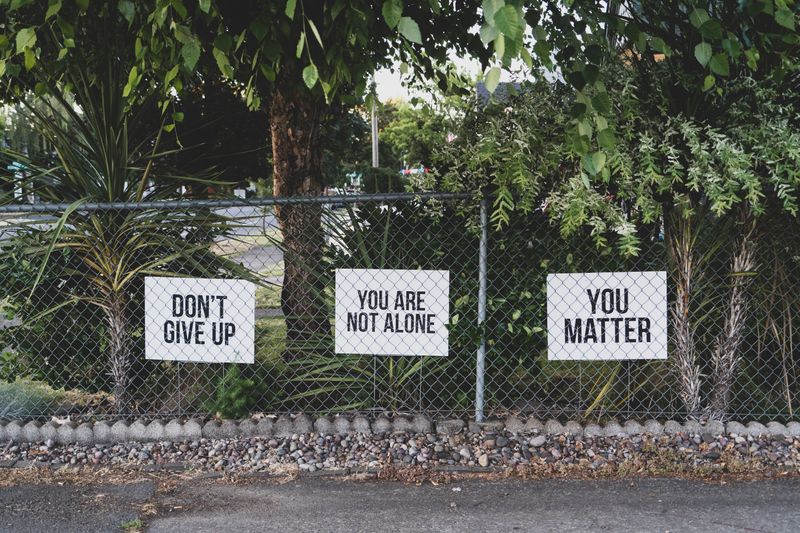 Photo by Dan Meyers on Unsplash
Photo by Dan Meyers on UnsplashPostpartum depression is a more significant and serious health concern than the "baby blues". But if you think you're experiencing either, seek help to better your mental health in the postpartum period.
Your feedback matters to us.
This Byte helped me better understand the topic.
